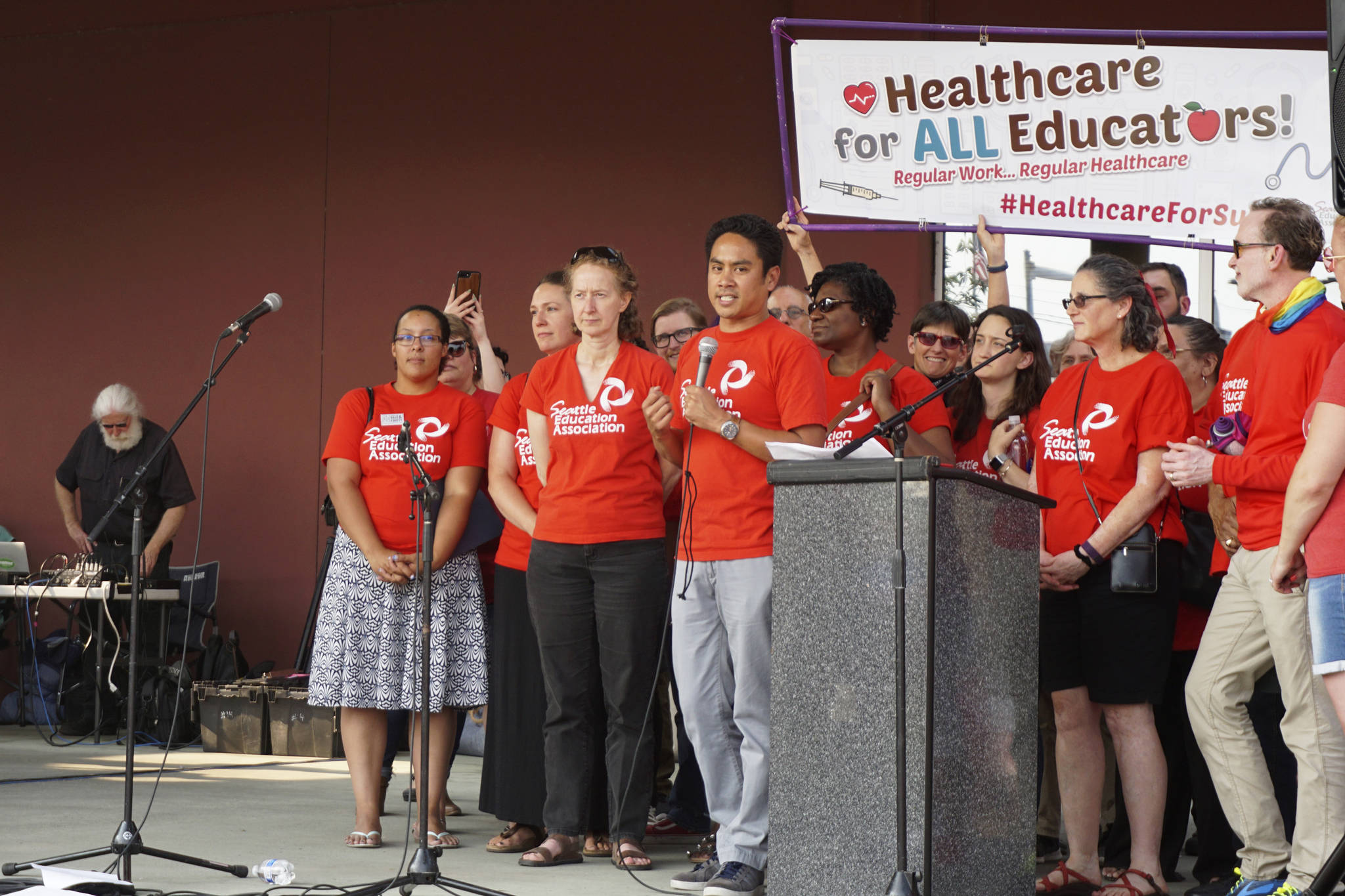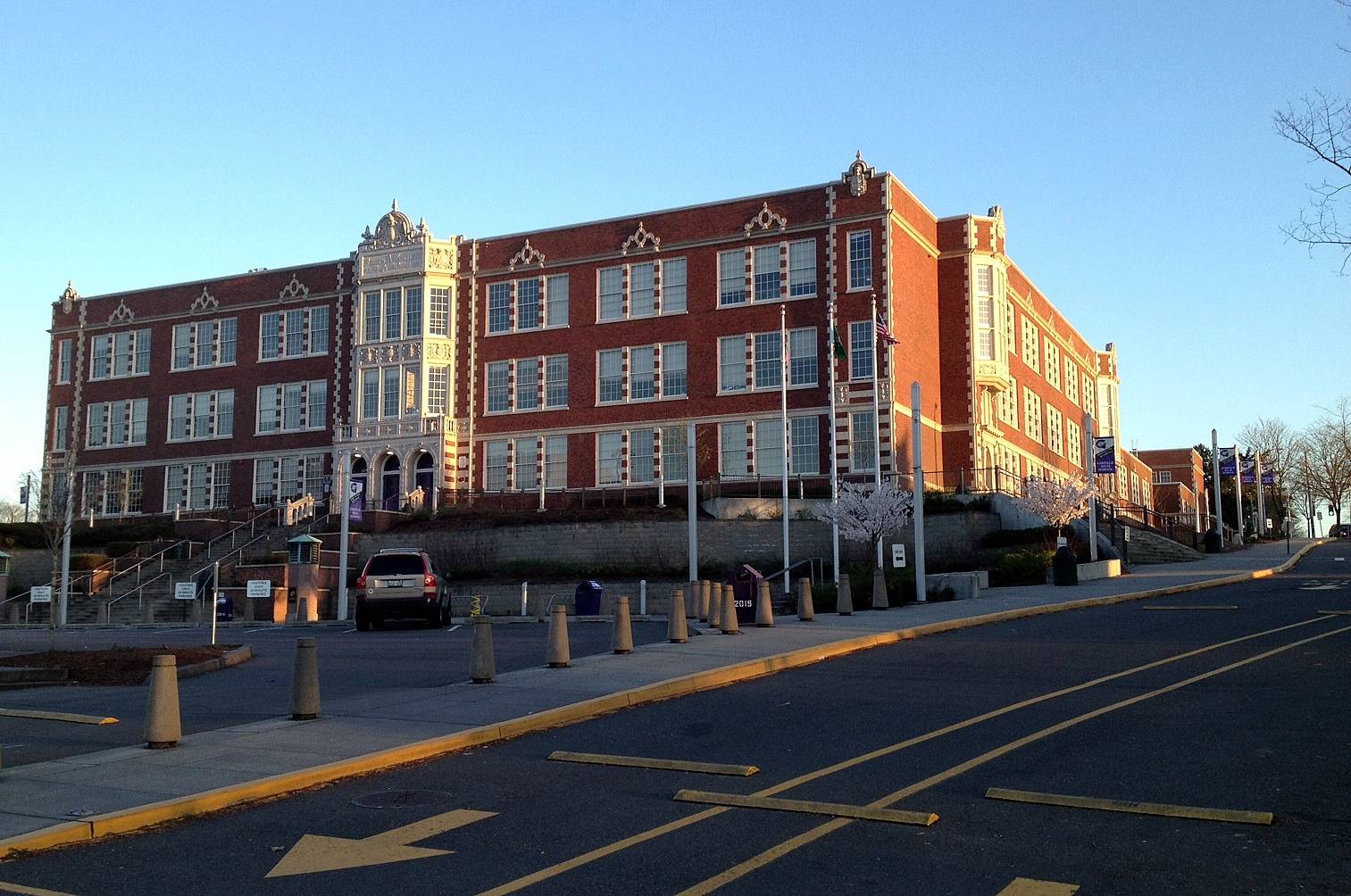Educators will continue the school year with a slight pay raise following their approval of a yearlong contract late Saturday afternoon. Over 5,000 teachers and school staff represented by the Seattle Education Association (SEA) will now receive a 10.5 percent salary increase and five days of paid parental leave.
The agreement awaits the School Board’s vote next week to become effective, after which it will last until August 31, 2019. The expansion of race and equity teams throughout the district that aim to eliminate opportunity gaps, and increased professional development opportunities for teachers and other school staff were also included in the contract.
SEA’s approval of the collective bargaining agreement stood in contrast to the union’s August 28 vote to authorize a strike if a deal wasn’t reached with Seattle Public Schools (SPS) by Sep. 5. Contract negotiations between SPS and SEA last stalled in 2015, when disagreement on teacher pay led to a five-day strike that impacted 50,000 students.
Meanwhile, teachers from several districts throughout Washington, including in Tacoma and Centralia , remain on strike over pay raises. Saturday’s vote also follows a Friday ruling in which Thurston and Cowlitz County judges stated that teacher strikes in Tumwater and Longview were illegal, although no penalties were levied on the districts.
Union and SPS representatives sought to avoid a similar disruption to the beginning of the school year through interest-based bargaining that commenced in May. “I want to thank our educators, the joint bargaining team, and SEA leadership for their hard work throughout the bargaining process. I am proud of the interest-based bargaining process we engaged in with SEA,” Superintendent Denise Juneau said in a statement. “We coalesced around common values, including racial equity, and crafted a contract that honors our educators and helps us advance our collective commitment to every student in the district. Seattle remains competitive with our neighboring districts while maintaining critical services for students and families.”
Educators in most of the state’s nearly 300 school districts were seeking higher wages following the infusion of $776 million into the state budget for teacher salaries statewide. Washington lawmakers added the funding to help settle a nearly decade-long legal battle over public school funding known as McCleary, a school-finance case in which the Washington Supreme Court found that the state was underfunding the K-12 school system in 2012.
The state lawmakers’ plan to resolve the McCleary lawsuit sought to end a reliance on local property taxes to fund basic education. As a result of the settlement, SPS will now only be able to collect $2,500 per student annually of the voter-approved local education levy, compared to $4,000 in previous years.
In an August budget update, SPS officials cited the lawmakers’ plan to settle the McCleary lawsuit as the cause for a projected budget shortfall of $43.8 million in the 2019-2020 school year, $55.7 million the following year, and $68.1 million in the 2021-2022 school year. In order to fund staff pay raises, the district “will need to make reductions across the organization including staff and student services and programs,” SPS officials wrote in an Aug. 28 email to Seattle Weekly.
Yet some Seattle educators maintain that the city’s rising cost of living outpaces the increased wages. “We’re shooting ourselves in the foot if we’re only giving a 10.5 percent raise increase, because doing so will not allow us to retain or recruit good educators in Seattle in comparison to other districts in the region,” Connor Lee, a special education assistant at Louisa Boren Stem K-8, told Seattle Weekly on Sep. 4.
Under the new contract, SPS teachers’ salaries will range between $56,947 and $111,322, while the current contract offers between $50,604 and $100,763. Meanwhile, Shoreline’s union secured salaries ranging from $62,088 to $120,234, and teachers on Bainbridge Island negotiated to earn between $53,905 and $105,096, according to statewide teachers’ union Washington Education Association (WEA) data.
Shortly after educators approved the contract late Saturday afternoon, Lee wrote Seattle Weekly in a text message that he voted an “enthusiastic no” for the bargaining agreement. He added that the majority of union members who approved the contract decided to “take this and try to push for more in January, pressuring Olympia to lift the levy lid.”
Some union members also argued that substitute health care should be guaranteed in the new contract. If approved by the School Board, substitute teachers will only qualify for health care if they sub at one school for 45 continuous days. Toby de Luca has been a certified substitute teacher in Seattle for seven years, but he currently doesn’t have health insurance because he subs in various schools throughout the district. “The school district can’t function without substitutes,” de Luca told Seattle Weekly on Aug. 28.
Despite some of the educators’ concerns about the contract as it stands, the School Board voiced their approval in a statement released on Saturday: “These new investments will help ensure many students in Seattle receive the educational supports they deserve,” School Board President Leslie Harris said. “I am so proud of our educators and staff for building a contract that is student centered. We look forward to joining with our staff, families and students to work with the Legislature for full funding of public education.”
mhellmann@seattleweekly.com









